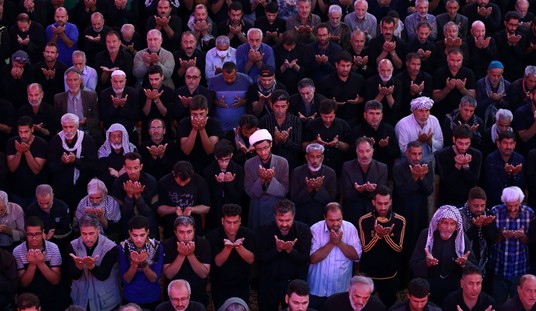One of the most beautiful attributes of the Church is unity. To be more specific, the unity that is found in Jesus Christ. In John 13:35, we read Jesus’ encouragement to His disciples that, “all people will know that you are my disciples if you have love for one another.” Christians are to love our neighbors, for sure; but one of the things that separates us from non-believers is our love for fellow Christians. Among other ways, that love is visibly manifest in the unity found within the local church.
Guarding that unity through prayer, humility, and diligence is vital to the continued health of churches and the ability to effectively share the Gospel. Unfortunately, one of the pictures that the Church often gives the world is that of disunity.
If they know next to nothing about the church, many non-Christians know enough to dismissively chuckle at jokes about church splits due to trivial things like the color of the carpet, length of sermons, and the style of music. Recognizing that, and in a misguided effort to keep everyone happy, many churches have resorted to two different worship services – “traditional” and “contemporary.” Unfortunately, “contemporary worship” services do not aid the pursuit of unity.
Right off the bat, splitting a single church into basically two different churches that meet in the same building is, well, obviously divisive. That’s not to deny that the impulse isn’t often well-meaning. The desire to serve two different target audiences, so to speak, isn’t necessarily a bad thing, but that desire should be worked out as corporately as possible.
One of the ways in which a church can reflect God to the community is through diversity. With the differences in age, sex, race, and personalities, the Church is a mishmash of image bearers who together reflect the love of Christ. In my church, for example, the fact that a long-haired, rock and roll-loving, beer-swilling individual like myself can not only worship beside a buttoned-up, teetotaling, African-American lawyer, but that we genuinely love each other as brothers, is a testimony to the unity found in Christ. If he attends a “traditional” service while I go to a “contemporary” service on Sunday mornings, the beauty found in diversity is ironed out, and my church displays the love of Jesus to our community a little less.
That raises the question of how the church can accommodate everyone in a single worship service. The answer, of course, is found in love. It is incumbent upon the body of Christ to surrender their rights in love and to prefer one another. As true as that statement is, working it out in practice can appear tricky.
Over the decade-plus that I’ve been a Christian, I’ve heard it repeated over and over that the older generation or, pejoratively, the “conservatives” among us should humble themselves, surrender their rights, and suck it up so that the “cool” members of the church can worship God to our music. Well, as one of the supposedly “cool” members of the church, I find that sentiment arrogant, myopic, and unloving.
As I write this, I’m listening to Megadeth’s new album (you didn’t know that Megadeth had a new album, did you?). But there is a very good chance that once “Dystopia” finishes playing, I’ll listen to “Chet Atkins Plays Back Home Hymns” or even a Mozart album. If I were a betting man, and I’m not, I would bet lots of money that many of my brothers and sisters in Christ who fall into the “not-cool” category (whatever that means) and who love traditional hymns, will never knowingly choose to play anything by Megadeth.
The above paragraph should serve to illustrate the point that while I can prayerfully and joyfully worship God to traditional hymns played in a traditional style, no amount of love, humility, and surrendering of their rights is going to allow many others to prayerfully and joyfully worship to my preferred music genres. For them, certain styles of music are simply going to be too distracting. And that’s fine. And that doesn’t mean that they believe me sinful or even spiritually immature because I enjoy thrash metal.
Love means that I need to recognize that there are probably insurmountable obstacles that prohibit many from fully worshiping God to the style of music that I prefer. Love means that, for the sake of unity, I should surrender my rights to worship to the beautiful sounds of a thrash metal worship band. That surrender of my rights is demanded by love because the reality is that it’s much easier for me to worship God to traditional worship styles than for many others to worship God to contemporary worship styles.
For the sake of the gospel, and as a demonstration of the unity and love found in Jesus, the local church should endeavor to corporately serve the whole during the worship service and not just the parts. With that in mind, and with the understanding that the gospel will always be offensive to unbelievers, we should desire for our churches to be as welcoming to the broadest segment of the population as possible; contemporary worship styles run the unnecessary risk of alienating some for the sake of a few.









Join the conversation as a VIP Member